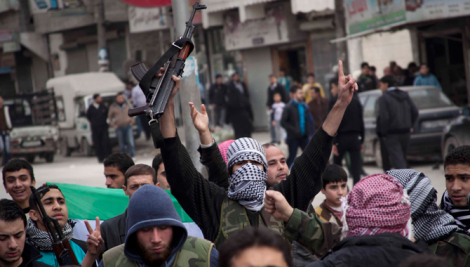Although we live in a moderately peaceful and stable society in Cleveland Park, many other places in the world suffer from a devastating issue: violence and conflict. As violence and conflict is quite a broad term, the focus of this article will be on how WIS students are being informed about the different types of violence happening all around the globe. Whether it’s in Sudan or Papua New Guinea, conflicts have caused beautiful locations to be torn apart and, more importantly, families to be separated and killed.
A few of the most important conflicts in the world are situated in Yemen, Syria, Afghanistan, South Sudan, and Cameroon. According to World Bank estimates, half of the global extreme poor will live in fragile and conflict-affected settings by 2030. Franck Bousquet, Head of Fragility, Conflict, and Violence (FCV) of the World Bank, explained during his interview that his job is to aid countries who are suffering at the hands of violence and war and delve into the economic impact. “In addition to the devastating human toll, the economic and social costs of conflict are staggering: in 2016, for instance, the cost of conflict stood at an astonishing US $14 trillion,” Bousquet said.
A joint report from the UN and the World Bank found that conflicts drive eighty percent of all humanitarian needs. Additionally, it was reported that for every $1 invested in prevention, $16 dollars are saved down the road. Investment, before a conflict turns violent, can be a key factor in preventing crises. These interventions include addressing the sources of conflict by supporting skills development and entrepreneurship for youth, improving access to markets for pastoralists, and providing essential support to refugees and host communities. With enough support, conflicts that start in small communities can be prevented before they occur.

The question that remains is how we, as WIS students, can help educate those who are less aware of violence and conflict around the world. At WIS, the answer can be found in Shusmita Vargo’s geography class. In freshman year, WIS students learn about the ongoing issue of forced migration in the Democratic Republic of Congo and human trafficking accross borders in parts of Central Africa.
A few sophomores who took Vargo’s class last year had positive things to say about how they were informed about conflicts. Lucas Bazoberry stated, “I think we learned a lot about the impacts of conflict on economies. I was overall really happy with her class.”
This positive view was also shared by fellow classmate, Peter Sloboda, who enthusiastically discussed how “Ms. Vargo’s class taught us a lot about conflict in other countries and it really helped me learn about issues in the world.” However, Sloboda thought that the course “mostly focused on African countries and diversifying the subject would be good too.”
Olivier Lavinal, Manager of the Global Concessional Financing Facility at the World Bank, spoke about the importance of the education of this issue and preventions that could be taken by future generations. “Personally, I think that raising awareness on the importance of preventing conflicts in the world can be useful; especially in countries with low levels of education that are impoverished,” Lavinal said.
This initiative could originate from a program in which WIS students create service projects to help those who don’t have the chance to receive a similar education. However, for this initiative to work, WIS students need to spread awareness not only through social media but in real-life as well to help teenagers across the globe realize that prevention is effective and conflict or violence can be mitigated.
By Patrick Bousquet

































































